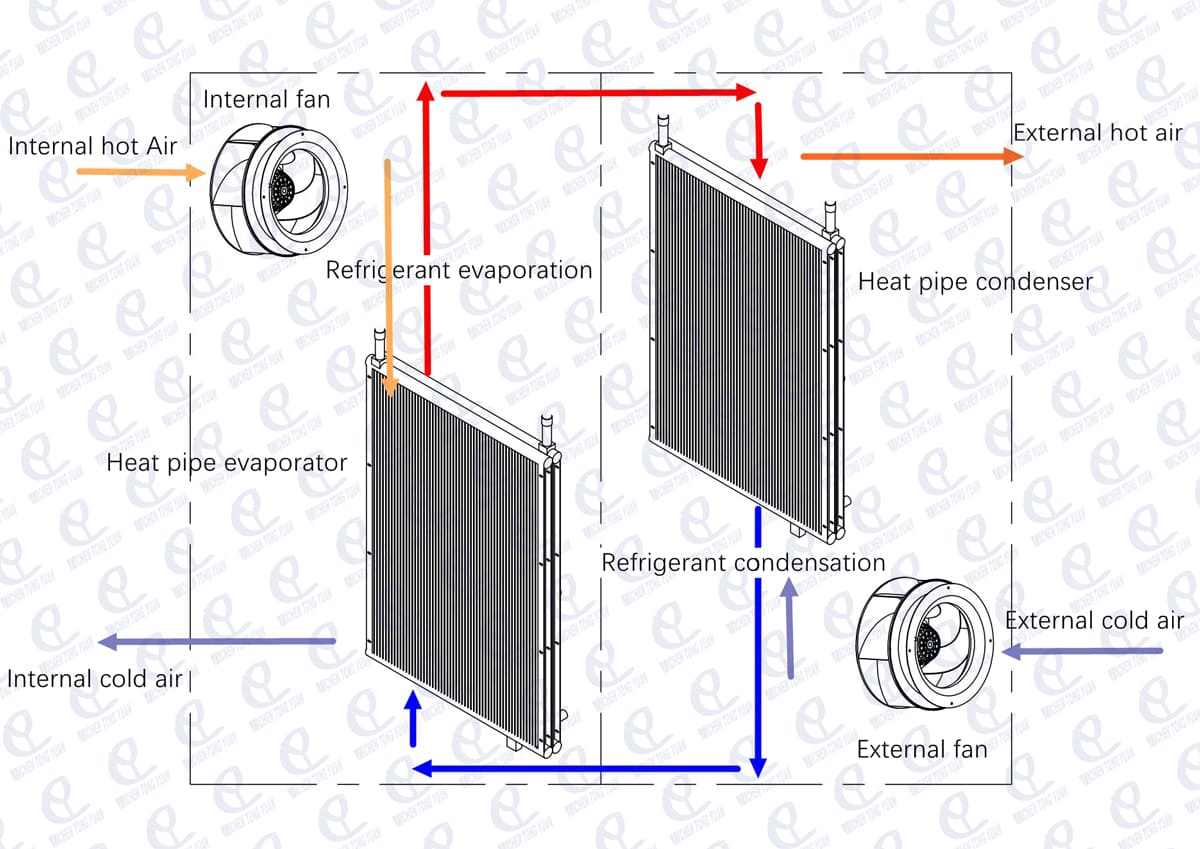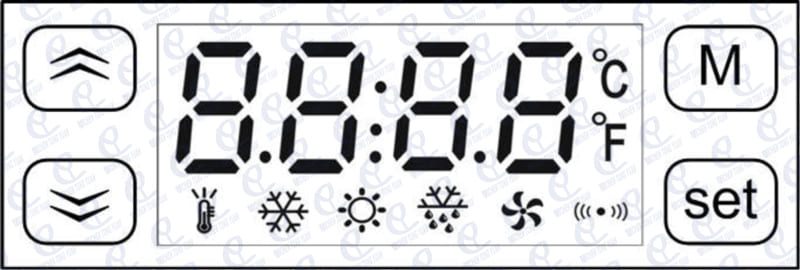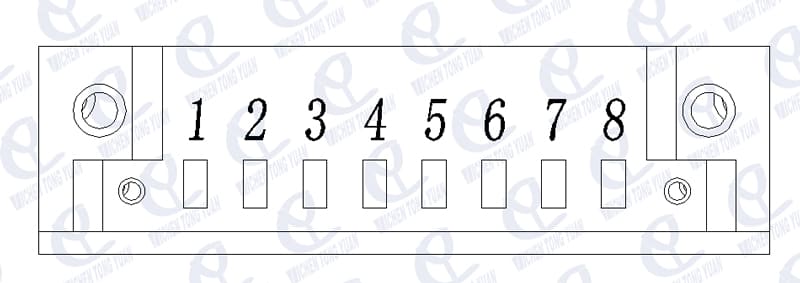Applications of Control Panel Heat Exchangers
Telecommunications
Ensuring Reliable Network Performance
Control Panel Heat Exchanger plays a crucial role in maintaining optimal temperatures for sensitive electronics housed within telecom enclosures. Efficient thermal management prevents overheating, ensuring uninterrupted network performance, signal integrity, and prolonged equipment lifespan.
Protection Against Environmental Factors
The ability to operate reliably in varying environmental conditions makes Control Panel Heat Exchanger indispensable for modern telecommunication infrastructure. By mitigating temperature fluctuations, it prevents signal degradation and hardware failures.
Data Centers
Optimized Cooling for Server Efficiency
In high-density data centers, thermal regulation is critical to prevent hardware failure and maintain operational efficiency. Control Panel Heat Exchanger provides a highly effective cooling mechanism that optimizes energy consumption while protecting servers and networking equipment from excessive heat buildup.
Energy Efficiency and Longevity
With its ability to regulate temperatures effectively, Control Panel Heat Exchanger contributes to enhanced system performance, reduced downtime, and prolonged component durability, reducing overall maintenance costs.
Industrial Automation
Preventing Heat-Induced Failures
Automation systems and industrial control panels generate significant heat during operation. Control Panel Heat Exchanger ensures these critical components remain within safe temperature ranges, reducing the risk of temperature-induced failures.
Enhancing System Efficiency
By stabilizing the operating environment, these exchangers contribute to the reliability and efficiency of automated manufacturing processes, robotic systems, and high-precision equipment.
Renewable Energy Systems
Maintaining Stable Performance in Solar and Wind Energy
Control Panel Heat Exchanger is integral to maintaining stable temperatures in renewable energy applications such as solar inverters and wind turbine control systems.
Ensuring Longevity and Efficiency
Effective heat dissipation in these power electronics enhances efficiency, prevents thermal stress, and ensures continuous energy generation, optimizing the performance and longevity of renewable energy systems.
Transportation
Reliable Cooling for Vehicle Control Systems
Railways, ships, and other transportation systems rely on advanced communication and control systems that demand precise thermal management. Control Panel Heat Exchanger provides effective cooling for onboard electronics, power distribution units, and control enclosures.
Handling Extreme Environmental Conditions
Ensuring operational reliability under extreme temperatures, vibrations, and humidity variations, Control Panel Heat Exchanger enhances safety and durability in transportation applications.
Medical Equipment
Ensuring Accuracy in Medical Devices
Precision is paramount in medical devices such as imaging systems, diagnostic tools, and patient monitoring equipment. Control Panel Heat Exchanger stabilizes internal temperatures, ensuring accurate readings and uninterrupted operation.
Contaminant-Free Cooling
Its ability to provide consistent cooling without contaminants makes it an essential component in medical-grade enclosures, supporting compliance with strict healthcare industry regulations.
Military and Defense
Protecting Mission-Critical Electronics
Harsh environments, extreme temperatures, and demanding conditions characterize military and defense applications. Control Panel Heat Exchanger is designed to safeguard mission-critical electronics, radar systems, and communication equipment from thermal fluctuations.
Enhancing Operational Reliability
This ensures peak operational efficiency in battlefield conditions, enhancing equipment reliability and longevity under extreme circumstances.
Food and Beverage Industry
Temperature Control for Production Consistency
Process control panels used in food and beverage manufacturing require stable environmental conditions to ensure consistent production quality.
Improving Hygiene and Compliance
Control Panel Heat Exchanger prevents overheating in automation control systems, helping maintain strict temperature standards, reducing contamination risks, and improving overall operational efficiency.
Oil and Gas Industry
Withstanding Harsh Industrial Environments
Control systems used in oil and gas extraction, refining, and pipeline operations must withstand extreme temperatures and harsh environmental conditions.
Ensuring Reliability in Critical Applications
Control Panel Heat Exchanger ensures thermal stability, protecting electrical components from heat damage, thereby enhancing system reliability and safety in critical energy operations.
Energy Storage Systems
Efficient Cooling for Battery Enclosures
Effective thermal management is crucial for battery enclosures and energy storage systems to prevent overheating and ensure efficient performance.
Enhancing Safety and Longevity
Control Panel Heat Exchanger regulates internal temperatures, optimizing battery life, reducing fire risks, and maintaining stable energy output. This technology is vital in renewable energy storage, grid applications, and backup power solutions.
By meeting diverse thermal management challenges across industries, Control Panel Heat Exchanger stands as a critical solution for enhancing operational reliability, energy efficiency, and equipment longevity.





































